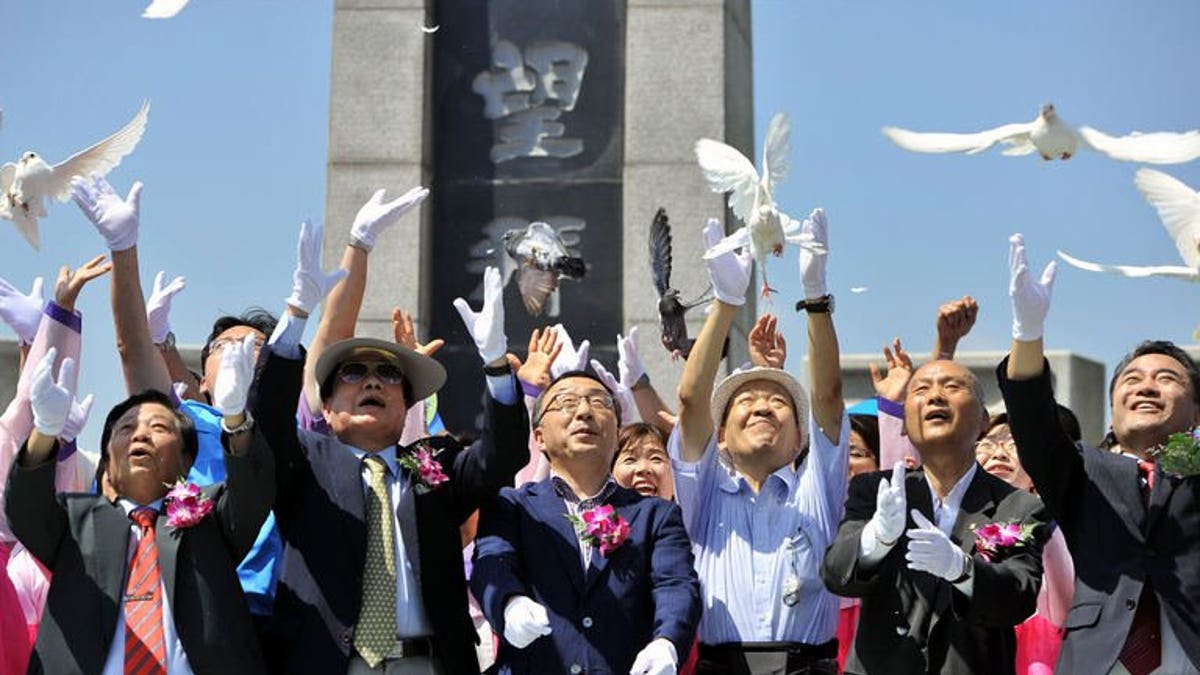
South Koreans release pigeons and pray for the unification of Korea near, in Paju, north of Seoul, on August 24, 2013. South Korea's Red Cross has announced a list of 500 potential candidates for reunions next month with their North Korean relatives separated for decades by the 1950-53 Korean War. (AFP)
SEOUL (AFP) – South Korea's Red Cross on Saturday announced a list of 500 potential candidates for reunions next month with their North Korean relatives separated for decades by the 1950-53 Korean War.
The list, which was generated by a computer taking age and family background into account, was released a day after the two Koreas agreed to go ahead with the first family reunions in three years.
The reunion programme was suspended after the North's shelling of a South Korean border island in November 2010, and its resumption marks a symbolic but important step.
The reunions will be held on September 25-30 at the North's Mount Kumgang resort.
South Korean Red Cross chief Ko Kyung-Suk said his office would speed up the selection of the final 100 candidates, citing the tight schedule.
The 500 candidates would be shortened to 250 by Thursday after interviews and medical exams, with the final list of 100 people announced on September 16.
Part of the selection process is ensuring candidates still have living relatives on the other side.
The push to restart the reunions was initiated last week by South Korean President Park Geun-Hye, who urged Pyongyang to "open its heart" and agree to kickstart the programme in time for next month's Chuseok holiday -- when Korean families traditionally gather together.
Millions of Koreans were left separated by the Korean War, which sealed the peninsula's division. Most have died without having had a chance to reunite with family members last seen six decades ago.
About 72,000 South Koreans -- nearly half of them aged over 80 -- are still alive and wait-listed for a chance to join the highly sought-after family reunion events, which select only up to a few hundred participants each time.
At the emotional, often tearful reunions, North and South Koreans typically meet in the North for two or three days before the South Koreans head home again.
The reunion programme began in 2000 following an historic inter-Korean summit. Sporadic events since then have seen around 17,000 relatives briefly reunited.
The last such meeting took place in late 2010, before the North's shelling of Yeonpyeong island.
Inter-Korean relations have showed signs of improving recently after months of heightened military tensions that followed the North's nuclear test in February.
